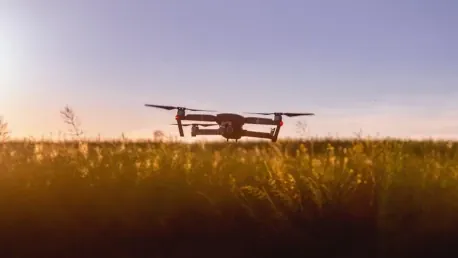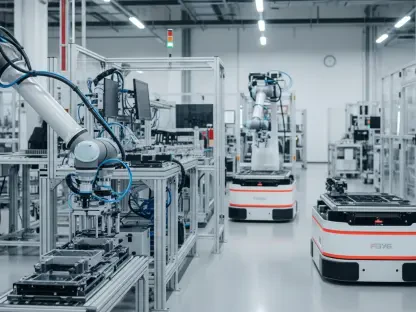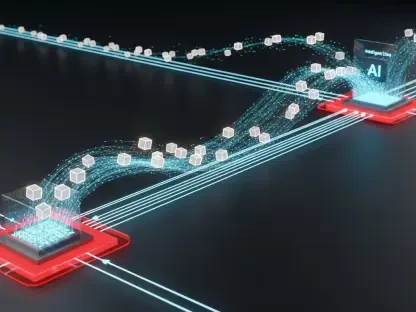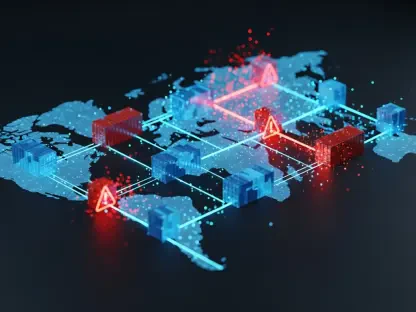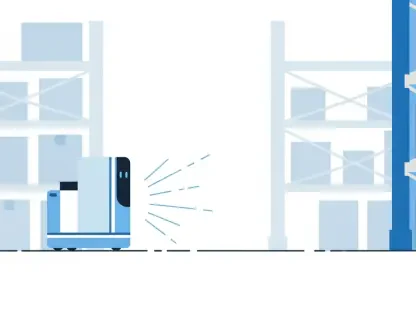China is at the forefront of revolutionizing the logistics industry with the rapid development and implementation of unmanned delivery technology. This transformation is driven by technological advancements, market demand, and supportive policies, leading to significant improvements in delivery efficiency and capacity. The express delivery sector, in particular, has seen a surge in the use of drones, autonomous vehicles, and smart warehousing systems, marking a new era of intelligence in logistics. Companies have been quick to adopt these innovations, which are changing the face of the industry and setting new standards for speed, efficiency, and accuracy in package delivery.
The Rise of Drone Deliveries
One of the most notable advancements in China’s logistics sector is the use of drones for delivery. Phoenix Wings, a cargo drone subsidiary of SF Express, has been a pioneer in this field. Since the commencement of the harvest season in September, Phoenix Wings’ drones have completed over 300 flights, transporting more than 2,700 kilograms of freshly harvested hairy crabs from Yangcheng Lake. This drone-based delivery system, combined with cargo planes, enables the transport of 10 tonnes of crabs daily to Southeast Asia within just 48 hours. This efficiency underscores the immense potential of drone technology in transforming logistics, particularly for perishable goods requiring swift delivery.
The use of drones for delivering fresh products like hairy crabs highlights the efficiency and reliability of unmanned delivery systems. These drones are equipped with advanced navigation and control systems, allowing them to operate safely and effectively. The ability to meet consumer demands for freshness and quick delivery is a testament to the potential of drone technology in the logistics industry. The drones’ advanced capabilities ensure minimal disruption and significantly reduce delivery times, making them a viable alternative to traditional methods, especially in urgent delivery scenarios. This innovation is paving the way for other logistic companies to explore similar technologies.
Autonomous Vehicles in City Logistics
In addition to drones, autonomous vehicles are playing a crucial role in enhancing city logistics. ZTO Express, one of China’s leading logistics companies, has deployed over 200 unmanned vehicles across more than 40 cities. These vehicles are designed to navigate urban environments, delivering packages efficiently and reducing the reliance on human drivers. The deployment of these vehicles is transforming urban logistics, offering companies a more reliable and scalable solution for city-based deliveries. This technological shift not only addresses labor shortages but also significantly improves the speed and reliability of delivery services.
The deployment of autonomous vehicles in city logistics offers several benefits, including reduced labor costs, increased delivery speed, and improved safety. These vehicles are equipped with advanced sensors and AI systems that enable them to navigate complex urban landscapes, avoid obstacles, and ensure timely deliveries. As a result, companies like ZTO Express are able to enhance their operational capabilities and meet the growing demand for fast and reliable delivery services. The integration of AI and sensor technology in these vehicles ensures a higher level of precision and control, making them ideal for the congestion and clutter of urban settings. This innovation is a major step forward in addressing the challenges of last-mile delivery.
Smart Warehousing Solutions
Smart warehousing systems are another key component of China’s unmanned delivery revolution. JD Logistics, for example, has implemented intelligent picking and handling robots in its warehouses. These robots, powered by 5G technology, can navigate, lift, and move shelves of goods efficiently, processing over 600 orders per hour. This level of automation significantly increases productivity compared to traditional manual methods. The adoption of smart warehousing solutions exemplifies how advanced technologies can streamline operations within the logistics sector, transforming warehouses into high-efficiency hubs.
The integration of smart warehousing solutions streamlines order fulfillment processes, reduces errors, and enhances overall efficiency. By leveraging advanced technologies, companies can optimize their supply chain operations, reduce logistics costs, and improve delivery times. The success of JD Logistics’ smart warehouse is a clear indication of the potential benefits of intelligent warehousing systems in the logistics industry. The use of sophisticated robotics and AI systems ensures high accuracy and speed in managing inventories, further reinforcing the role of smart warehouses in the future of logistics. The efficiency gains from these technologies are pivotal for companies striving to keep up with escalating consumer demands.
Policy Support and Technological Advancements
The rapid development of unmanned delivery technologies in China has been supported by favorable policies and significant technological advancements. Since 2014, JD Logistics has built over 40 intelligent logistics parks in more than 20 provinces, substantially cutting down logistics costs and boosting delivery efficiency. Additionally, Phoenix Wings benefitted from the East China Regional Administration of the Civil Aviation Administration of China’s support, which led to the first generation of logistics drones and the issuance of the first operating license for experimental drone deliveries. The government’s proactive stance has been instrumental in fostering an environment conducive to innovation and advancement in the logistics sector.
Advances in autonomous navigation, intelligent control systems, and obstacle avoidance capabilities have been pivotal in the commercialization of unmanned delivery technologies. These innovations have resulted in drones that are more reliable, stable, and capable of longer flight times with increased payload capacity. The extensive use of drones for logistics operations, as evidenced by Phoenix Wings’ impressive track record, underscores the effectiveness of these technological advancements. The continual improvement of these technologies ensures that drones and autonomous vehicles remain at the cutting edge, playing a critical role in the evolution of modern logistics. Policy support has enabled companies to push the boundaries of what is possible, leading to groundbreaking advancements.
Market Growth and Consumer Demand
China is leading a logistics revolution through the swift development and application of unmanned delivery technology. This shift is fueled by technological advancements, rising market demand, and favorable government policies, all contributing to significant upgrades in delivery efficiency and overall capacity. The express delivery sector specifically is witnessing a remarkable increase in the use of drones, self-driving vehicles, and advanced warehousing systems, heralding a new era of intelligent logistics solutions. Companies have eagerly embraced these technological innovations, fundamentally transforming the industry’s landscape. These advancements are setting new benchmarks for speed, efficiency, and accuracy in package delivery, thereby enhancing customer satisfaction. As a result, the logistics industry is not only keeping pace with increasing consumer demands but also pushing the boundaries of what’s possible in delivery services. In this new era, China’s proactive approach in integrating cutting-edge technology is establishing the country as a global leader in modern logistics.
